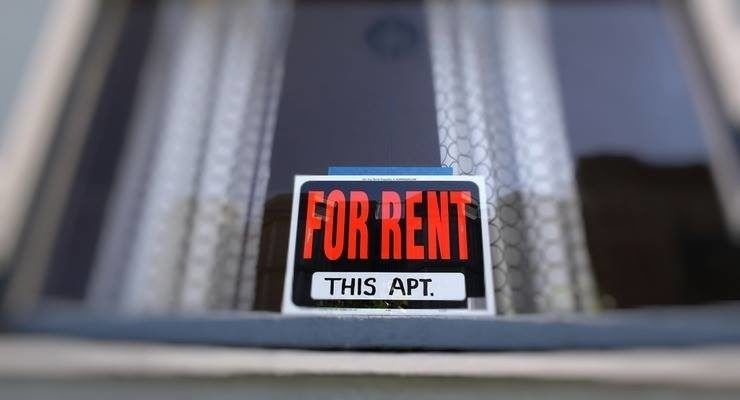Another plaintiff has joined an ongoing lawsuit against Pasadena’s Fuller Theological Seminary, accusing the school of discriminating against him because of his sexual orientation.
The federal lawsuit names Fuller Seminary and three administration employees as defendants. The plaintiffs, Joanna Maxon and Nathan Brittsan, both of whom are in same-sex marriages, are asking for $2 million in damages.
In the amended complaint, which was filed in U.S. District Court Tuesday, Brittsan, a pastor and Fuller graduate student, joined plaintiff Maxon, an online graduate student, who filed the original case in December of 2019.
The lawsuit appears to be the first one filed by a student expelled from a U.S. institution of higher learning for being in a same-sex marriage and could carry larger implications for a host of religious colleges and universities across the country.
“This is a civil rights case about two students who were expelled from their graduate program for one reason: they married someone of the same sex,” said the amended lawsuit, filed by attorney Paul Southwick.
However religious institutions appear to be entitled to some exemptions from Title IX nondiscrimination rules. The protection to those institutions is broad, some legal experts say.
According to the suit, Maxon “is a wife and mother who hoped to use her degree to become a better supervisor and to open up new opportunities for serving her community.” Having financed her education through federal funding from the U.S. Department of Education, Maxon must now repay her student loans and “reassess her professional goals” after being expelled, said the suit.
Maxon was dismissed from Fuller in October of 2019 in a letter from defendant Director Nicole Boymook, for violation of the Sexual Standards component of the Fuller’s Community Standards.
Brittsan, meanwhile, had hoped to use his degree “to advance his career within his denomination.” Since Brittsan also financed his education through federal funding, said the suit, he has had to delay his education for a year after being expelled, according to the complaint.
Brittsan was expelled from Fuller in a letter dated November September 21, 2017, from Dean Mari Clements, who is also named as a defendant in the case. The letter stated that Brittsan was being dismissed from Fuller “on the basis of a violation of the Sexual Standards component of Fuller’s Community Standards,” said the complaint.
Attorney Southwick said in an interview Tuesday that the additional claims added to the original lawsuit involve fraud and breach of faith; specifically, the violation of a California statute requiring transparency if an educational institution does not comply with Title IX, a federal civil rights law.
The 1972 law states, “no person in the United States shall, on the basis I of sex, be excluded from participation in, be denied the benefits of, or be subjected to discrimination under any education program receiving Federal financial assistance.”
Some colleges, however, have requested exemptions from the law, claiming religious freedom. According to the lawsuit, however, Fuller has not applied for, or received a religious exemption from the requirements of Title IX.
However, U.S. Department of Education rules appear to allow that “religious institutions that have neither sought nor received prior written assurance from the Office of Civil Rights (OCR) may still invoke their exemption after OCR receives a Title IX complaint.”
Fuller is upfront about what it calls its “lawful discrimination.”
“The seminary does lawfully discriminate on the basis of sexual conduct that violates its biblically based Community Standard Statement on Sexual Standards,” the Seminary says on its website, continuing to say “Fuller Theological Seminary also does lawfully discriminate on the basis of religion.”
“Therefore, the seminary expects members of its community to abstain from what it holds to be unbiblical sexual practices,” the site notes.
“This policy is also one of the seven Statements of Community Standards applicable to all members of the Fuller community, and as such, adherence to it is a continuing condition of admission and employment,” the statement reads.
Southwick also told Pasadena Now that the California legislature enacted a new statute that went into effect in the 2017-2018 academic year.
“It said, ‘If you’re going to claim that kind of an exemption, you need to put it on your website, and notify the state government,’ and Fuller did not do either of those things,” said Southwick.
The lawsuit was filed in federal, not state, court.
Daniel Blomberg, senior counsel for the Becket Fund for Religious Liberty, which is representing Fuller in the case, did not respond to a request for comment by publication time, but told Christianity Today Tuesday, “The claims here are dangerous for faith-based institutions. If the court was to accept them, then they would be harmful to religious groups of all backgrounds and particularly minority religious groups that have beliefs that the majority and surrounding communities might find unpopular.”
Blomberg added, “We think that it’s unlikely that courts would accept these kinds of [plaintiff’s] arguments because they’re weak claims, but they’re dangerous.”
A central issue in the case will be for the court to decide if Maxon agreed to abide by specific community standards in order to remain a student and then violated those standards, thereby triggering her expulsion.

















